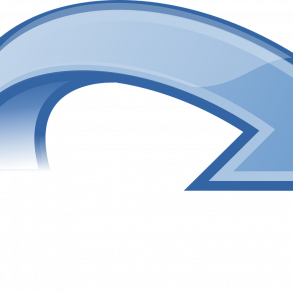By Maren Uffenkamp for Enlivening Edge Magazine
It was my first real job after university, and what happened during those three years truly changed my life. But read for yourself.
Names have been excluded from this story as they are not important. This is also not meant to blame anyone other than myself that I didn’t understand and act earlier. In fact, I am very grateful for this experience as it has helped me to grow personally in many unexpected ways.
Year 1 (Teal-like)
Oh boy, I was super excited I nailed this job! I had finally found a company that had a cool product I could (somewhat) identify with, and it certainly had a cool team. But let me start from the beginning: with a Bachelors in Business and a Masters in Politics I had no clue what to do with my life. Hence, I started applying for jobs like “assistant to the CEO” as I imagined in this role I would at least get insights into different areas of running a business and could find out which one was actually interesting me the most.
Same happened at this company. I applied to be the assistant to the CEO and I was invited for the interview. The interview itself then took some unexpected turns: First, the CEO was busy trying to get tables for the Munich Oktoberfest (which are super-hard to get) and had been queuing for this since 4 o´clock in the morning, hence was not in the office yet. Instead of having the interview with the person I was going to work most with, I had it with the CFO.
Second, after the interview they basically told me the job was not for me. They thought I would be bored the second week in. Third, they offered me a different job instead: as the Product Manager. Wow, I had no idea about Product Management. (Do they teach this nowadays at university? Well, they certainly did not back in the day). My main responsibility was around developing an app. Little did they know I didn’t even own a smart phone (this was in 2012) nor had I any clue what an “application” was. I didn’t even know what a startup was nor what it meant to be working in one. But this was exactly the point: I don’t exactly know how and why but they just trusted me in getting this stuff done! And I was going to flourish in this environment like a blossom in early spring.
From Day One I was basically my own boss. Onboarding process for me? None. What exactly my job as a product manager was, no one could really tell me: I was the first and only one at the company.
So I figured it out myself. Day in, day out, by talking to our customers and my colleagues and by listening to my gut feeling, I sensed which were the most pressing issues and I worked on those.
And I really got stuff done! My boss, the CEO, was always super busy and not really there for me, even if I had questions. Basically, I had to make almost all the decisions myself, all the time, which was also not so easy sometimes, because many times I just had no clue what I was actually doing.
And still I made decisions day in and day out. After the 10th customer told me about a certain problem she was facing I just went up to the developers and kindly asked if they could fix the bug “even though I know how busy you are.” And they did and the customers were happy. Everyone was happy. This was an awesomely agile way of working together.
For the first time in my life, I felt that I could be who I am, even in a work environment. I was wearing my “normal” clothes: in the summer this meant flipflops or barefoot, in summery dresses, and I always came prepared with my bathing gear underneath. Prepared? you ask. Yes, before lunch break I went around the office and asked all my colleagues–who were actually more friends and family than “colleagues”—to join me for a swim in a nearby public park, drying in the sun afterwards and heading back to the office. A little holiday break during my working day. Work life at its best.
Initiatives grew out of the team to go out in the evening or to have breakfast together regularly, so we could still easily spend quality time together with the developers even though they had moved one floor downstairs.
Our vision was becoming the world-leader within our industry. With his charismatic personality, the CEO got everyone believing in this vision, not because this was a “planned communications tactic” but because he was radiating this! And we totally bought into this. We were one team consisting of around 15 employees all striving for this one goal. Wow! No politics needed to get people convinced, we just “got” for ourselves what were the next important steps, and were working together on them, as a team.
I was in my element! Work was so much fun; I spent so many hours here (60-70 hour weeks were normal) but no one ever asked me to do that! It was always my own decision, and I totally loved it!
Year 2 (Orange-like)
With the beginning of my second year there, things started to change slowly but surely. We had grown into a company with 50 employees by that time. The most important change for me was the implementation of a hierarchical system that put a manager between me and the CEO, and that overall separated the different functions into departments.
My notions of “self-management” and “having a boss” did not go well together, because now I was being managed! We had weekly meetings where I reported updates on my KPI’s. I was still able to manage my own day, but the overall priorities were given to me top-down. Trust was not prevalent anymore; I had to prove first that I could be trusted! (Even though I had been one of the employees that had gotten the company to this stage of success in the first place.) My manager gave me “best practice” advice before I started any task, leaving little room for making mistakes. According to her logic I would get stuff done more quickly that way. I told my manager about my difficulties with this approach, and she tried to “micro-manage” me as little as possible, but it was still too much for me.
I was not listening to my customers anymore.
I was not going to my developer colleagues anymore to get the most pressing bugs fixed, and I was not bringing in my ideas anymore.
I started to feel that I could not bring my whole self to work anymore. Our adventure trips to the park became fewer and fewer. With the latest hires we suddenly had colleagues on board who were talking behind our backs, who thought we were doing things not professionally enough. The politics soon started, and I began to realize that I am not really good at that and never want to be.
New initiatives were taken to strengthen the team spirit. To me, they didn’t feel authentic.
To me, they felt as if someone had read somewhere that this and that is good for the team spirit and that’s why we were doing it, not because it was felt from within the team.
The same vision was still there. However, the more the company grew, the less the CEO was there to spread his charisma and hence this vision. As I had been a “direct report” to him in the early days, this was especially tough for me as I hardly got to see him anymore. And hence, my job became less and less meaningful to me because apart from the other factors I’ve mentioned, the vision became more blurry each day for me.
The implemented control mechanisms (like KPI’s, weekly reporting meetings, best-practice advice, etc.) achieved the opposite of what they initially intended to achieve: I worked fewer and fewer hours and became less and less motivated. Creativity and thinking belonged to the past, as now all I was asked for was “executing” what someone else at the top had come up with.
Year 3 (Green-like)
In my third year, the senior management team suddenly realized “for a company to stay innovative and ahead of things we need agile processes and structures”. This is why they formed cross-functional teams around products and / or services, and I became the team lead of 10 people. Wow, I had made it! Not even 30 years old yet and I was managing a team of 10 people! One should be proud of this and happy about it, right? Everything that had always been taught to me on how to be successful in life suddenly became true. Yet how little was this true for me!
On top of being micro-managed myself, I was now also micro-managing my team.
This was how I got it taught from my manager, and I didn’t know any better because I had never “managed” anyone before.
Within our team we were supposed to implement agile processes and structures. We were super-free in how exactly to implement them (using Kanban or Scrum). However, the rest of the company remained untouched from this (revitalised) agile mindset. My team was still expected to accomplish the KPI’s that were given to us top-down.
I felt super-uncomfortable. As a team lead I was put (and also I was putting myself) in this position of “knowing and being better than my team”; “I know better, and you must execute the way I think is best”. That was the mantra I worked according to—even though I was believing in the best of everyone, and I did not (and still do not) think of myself as an expert that people should look up to.
More and more people were getting hired for being good at “getting things done” and not for having an “entrepreneurial mindset”; this probably also made it hard for me to relate to some of the newly hired ones.
Everything was very professional by then. Communication was well planned and prepared; however, I was questioning more and more the meaning of the company and hence of my (daily) job.
In the middle of the process of becoming an agile company (again) I went to a yoga festival. Everyone was talking about Frédéric Laloux; I had never heard of him. He gave a presentation about the findings of his book Reinventing Organizations.
All of a sudden I felt as if I had come home and all my feelings made sense: over the years the company had turned into a (normal) hierarchical organization which was colliding with my values of self-management, wholeness and purpose.
I realized I could not be happy at this company anymore, and that I needed to leave—which I did! There were rumors that I had a burn-out, and in some way that is true: my values had been so “burnt out” that I was hardly in touch with my true self, my element, by now. Also, doing a job that seems meaningless leaves me with no energy, which could also be translated as “burn-out”.
How did this experience change my life? Somewhere along the way, when things started to change tremendously for me during that first job, I started to find support in yoga and meditation. For most of a year now I have been working extensively with my coach. Being surrounded by like-minded people as I am now in many places also helps. All this empowers me to become more and more aware of the moments where I am and can be my true self, and it makes me very sensitive to who I want to be with and to the environment I want to be in.
Writing these lines, I could feel this inner essence (in yoga we say prana or life energy) but also some sort of sadness and relief, as if writing this article is a major milestone in my healing process.
If this story touched you:
- Read this book: Reinventing Organizations by Frédéric Laloux
- Come to this MeetUp: (Munich) Teal Organizations
- Contact me: [email protected]
When Maren went through a painful “backward” organizational change within her first company she found great support in reading the book Re-inventing Organizations by Frédéric Laloux. Now as an evanglist of Lalou’s message it is her vision to bring society to a higher (and in her view a more timely) level of consciousness. She wants to achieve that by talking to people who are searching for new approaches to live a happy (working) life, giving talks, writing articles and is still open for new ideas; so don´t hesitate to get in touch ;).




